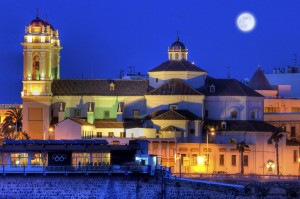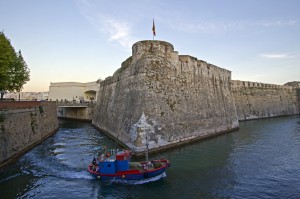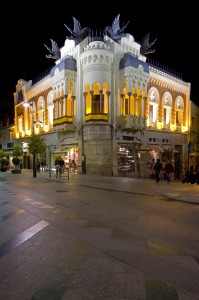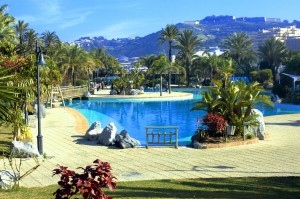CHARMED in CEUTA
9 Jul
An exotic Spanish melting pot in northern Africa
By DAN LORE
CEUTA LOCALS like to quote a favourite joke. A child asks his mother: “Where do good people go when they die?” To heaven.” “And where do bad people go?” “To hell.” So where do the others go?” “To Ceuta and Melilla.”
The self-deprecation tends to belie the fact that ceutis are very proud of their northern African enclave – and extremely protective of its image. They have managed to create a community in which four cultures – Christian, Hebrew, Hindu and Arab – live together in relative harmony.
A 40 to 60-minute journey by “fast ferry” from Algeciras (21 kilometres from the Costa del Sol), Ceuta is, for administrative purposes, part of Andalucía (and more specifically Cádiz) but it has special status as an “autonomous city”.
It is surrounded on both sides by water (with the Mediterranean and Atlantic connected by what is believed to be the only navigable moat in the world) and, together with Gibraltar on the other side of the Straits, dominates the entrance to the Mediterranean – hence its strategic military importance, both historically and currently.
With one of the highest traffic densities in the world (“even the cats have a car”), it covers an area of 22 square kilometres but this includes vast, protected, uninhabited green areas, and the 76,000 residents live in apartment blocks around the port and city centre.
Agriculture and industry are almost non-existent in Ceuta and maritime and fishing traditions dominate. The city also has a strong military past. General Franco’s nationalist troops set forth for Spain from Ceuta, and many Spaniards of a certain age had to do their obligatory military service in Ceuta.
Whenever the issue of Gibraltarian sovereignty is mentioned, those who oppose Spain’s claims to the Rock like to taunt: so what about Ceuta (and Melilla)? It is indisputable that, geographically, Ceuta is in northern Africa and is as physically close to Morocco as Gibraltar is to Spain. But after that the comparisons become irrelevant.
Over 1,500 years Ceuta was variously dominated by the Phoenicians, Greeks, Romans, Vandals, Visigoths and Arabs, before the Portuguese took power in 1415. When Don Sebastian died without heirs in 1581, the Portuguese crown (including Ceuta) passed to the King of Spain, Felipe II. Portugal gained its independence in 1640, but Ceuta voted in a plebiscite to stay loyal to the then Felipe IV.
Ceuta subsequently suffered two centuries of war with the Arabs but Spain signed a peace treaty with the Sultan of Fez in 1860, and the Spaniards were not required to demand sovereignty over Ceuta because it had been a part of Spain even before the kingdom of Morocco existed.
Indeed, the ceutis are the only Spanish inhabitants to have chosen voluntarily to be part of the kingdom of Spain – though they stress that Ceuta is much more than some anachronistic outpost of Spanish colonialism. It is, they say, an attractive, modern tourist destination where visitors can discover four different worlds.
(Photos courtesy of Servicios Turísticos de Ceuta)
Ceuta Tourism





No comments yet